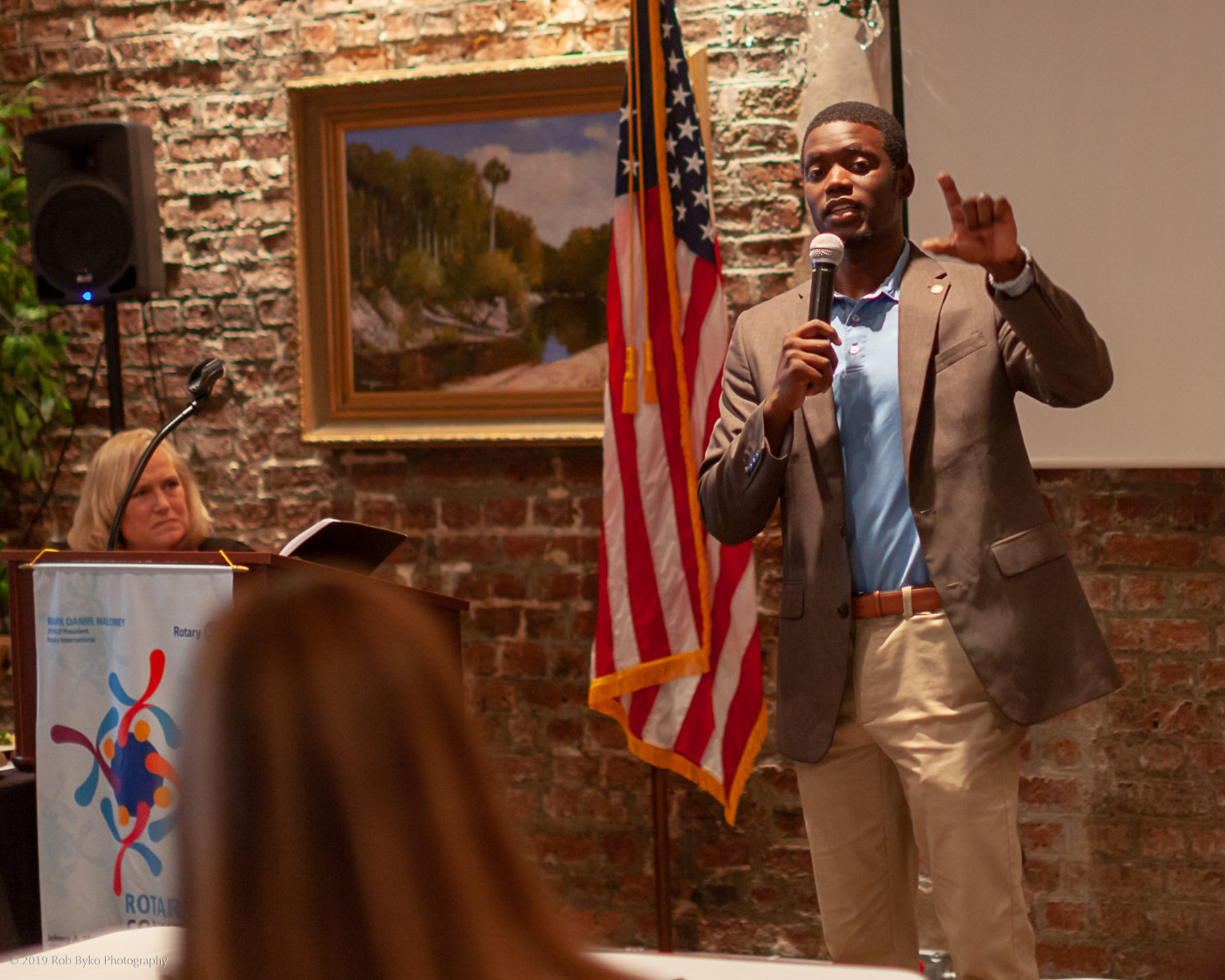Vincent Sheheen – Vision of Next Governor’s Priorities
Sept. 7, 2010: Mr. Sheheen was introduced by Andy Brack and swiftly ushered Tuesday’s full house through his vision of what the next Governor’s priorities should be and his personal commitment to the success of our state. But not without first establishing his regional heritage; as anyone can see on his website for governor, “Vincent Sheheen’s South Carolina roots run deep. He was born and raised in Camden, where his family has lived for well over a century…”
“It bothers me deeply to see the state of affairs of our state,” said Senator Sheheen. “We are at a crossroad, and we need ‘to take the road less traveled.’ We must innovate, and we must bring trust back into South Carolina’s leadership.” He succinctly outlined key elements of his agenda, which included:
Education: “We must invest in our local schools in order to build the foundation that will secure our future, he said. “South Carolina needs a governor who will work to improve our public schools.”
Employment: “We have the highest unemployment rate in the nation. We have to turn that around. We have severe, severe problems that need to be addressed. And as the proverb tells us, ‘without vision, we will perish.’ We need a governor who will be deeply involved and committed.”
Economic development: “We need to bring entrepreneurship back. We need to focus on the development of small businesses and providing the right incentives to attract and build industry in the state.” He made the case that economic growth can co-exist with conservation and sustainable interests. Mr. Sheheen clearly intends to support agriculture and agriculture based businesses such as reclaiming not only the growing and harvesting, but the more lucrative downstream processing of South Carolina’s commodities. “We must also do everything we can to support the deepening and expansion of the Port of Charleston,” he said several times.
Government: “We need a right sized government that is driven by a common vision. Whether smaller or larger, it needs to be the right size, and we must make the legislature more accountable. It is imperative that the next governor ‘walk the walk’ and not just ‘talk the talk’.” It is very hard work, he said, “we must roll up our sleeves and get to work now.” He articulated his commitment to working the process versus taking “a press conference approach to governing.” With respect to cost management, Mr. Sheheen wants to evaluate ways to streamline various government services that might be redundant and needlessly expensive today. “Do we need duplicate services across agencies? Can we succeed with a centralized Department of Administration?”
BRING ON THE QUESTIONS…
After his brief remarks, Mr. Sheheen clearly answered several questions that were posed in advance of the meeting as well as several spontaneous questions from the floor. Further, on economic development, he said that a big role of the governor is to lead the charge to build the state’s business base and serve as the chief business recruiter. “The governorship has been much less active, and the Commerce Department has shrunk … we need to change that direction if we’re to grow.”
Among the sectors that South Carolina should consider as priorities are medical/healthcare and alternative energy. “I am not for offshore drilling in South Carolina, and I believe there is a lot of potential success for us in alternative energy development. There is job creation in both of these sectors that is much needed.”
He emphasized the need to focus on supporting higher education. “Successful states have a clear emphasis on higher education. We must keep higher education within the reach of the citizens of South Carolina. We can follow the models of other states. But we have to reverse the trend of the last ten years and have a clear education agenda.”
Answering last questions about his position on taxation and revenue generation, Mr. Sheheen said there is room to increase tax on cigarettes, but we cannot tax our people in ways that makes their lives more difficult. “We cannot increase taxes on gasoline, especially in today’s economy, when our people are already having such a difficult time.”
Footnote: The Program Committee made many attempts through several channels to invite candidate Nikki Haley to participate with Mr. Sheheen, but her schedule did not allow her to attend.
Submitted by Mark Danes, Keyway Committee

